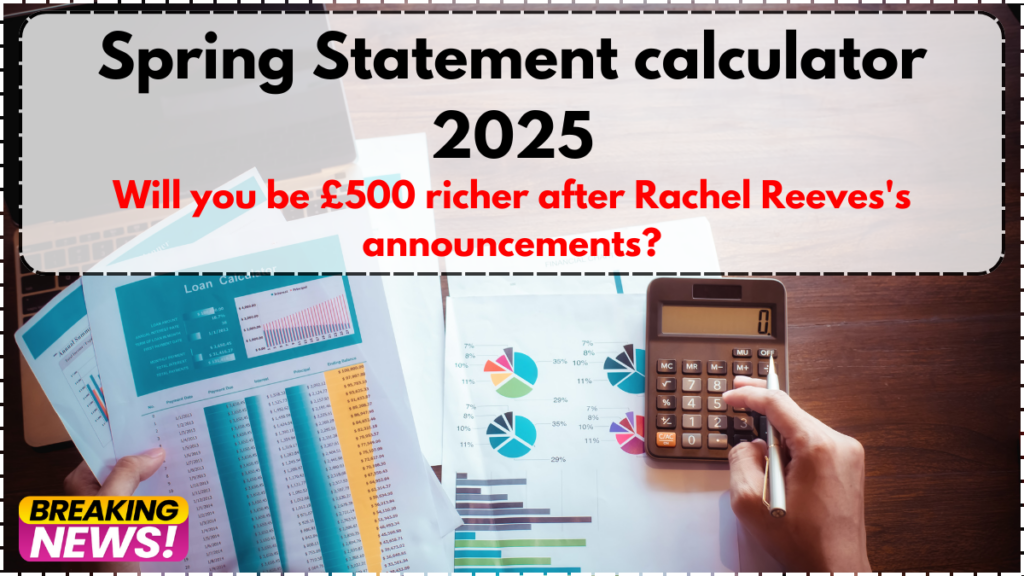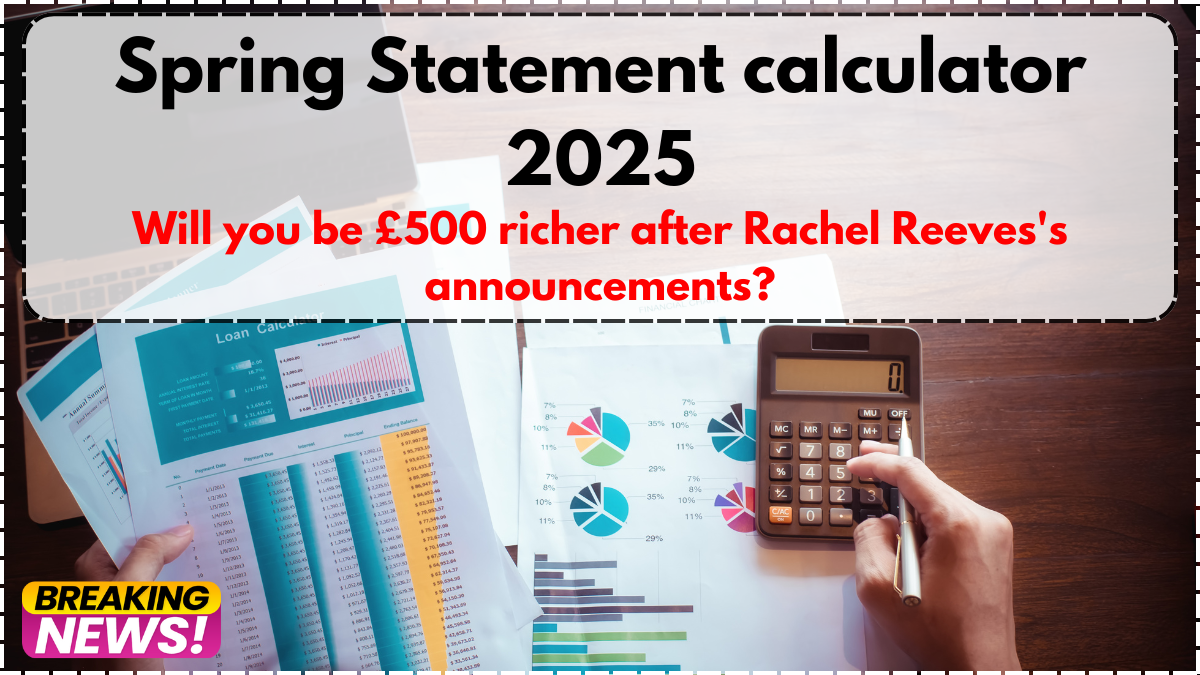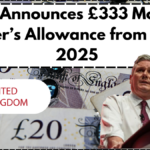Chancellor Rachel Reeves has revealed the latest fiscal roadmap for the UK in her April 2025 Spring Statement. Delivered in Parliament, the statement outlined a series of reforms and financial forecasts, with a central goal of improving household living standards and boosting the broader economy.
According to updated projections from the Office for Budget Responsibility (OBR), UK households are projected to be £500 better off annually by 2029. The rise is attributed to a 2.2% increase in real household disposable income (RHDI), a key indicator that tracks income after taxes and essential spending.
Reeves emphasized that her fiscal strategy is grounded in improving everyday lives, not just economic indicators. “This isn’t about graphs. It’s about people. More money in pockets, higher living standards,” she stated in the Commons.

Revised Economic Growth Forecast
The OBR has downgraded its GDP growth forecast for the UK, now predicting a 1% increase instead of the previous 2%. Despite this, Reeves stressed that Labour’s economic strategy is already showing results. Household income is now expected to grow at nearly double the rate projected in the final Conservative budget of 2024.
Key Budgetary Measures Announced in April 2025
In a bid to stabilize public finances and support long-term growth, Reeves unveiled a combination of spending cuts and targeted tax increases. Here are the most impactful announcements:
| Policy Change | Details |
|---|---|
| Universal Credit (Health-related) | Frozen for new claimants until 2030. Reduction from April 2026 upheld. |
| Standard Allowance | To rise to £106/week by 2030, slightly down from the previously planned £107. |
| Incapacity Benefits | Frozen at £97/week from April 2025. Only severe cases receive top-ups. |
| PIP Eligibility | Criteria to tighten from November 2026. |
| Under-22s Support | Incapacity top-up removed. |
| Inheritance Tax (IHT) | Adjustments confirmed. |
| Capital Gains Tax (CGT) | Changes implemented. |
| Minimum Wage | Increased as part of pro-worker agenda. |
| Employer National Insurance | Contributions raised. |
Broader Economic and Political Impact
The reforms have sparked debate across the political spectrum. Supporters argue that Reeves’ approach balances fiscal responsibility with social equity, prioritizing sustainable income growth. Critics, however, highlight the strain placed on vulnerable groups due to frozen benefits and reduced welfare expansion.
Tax analysts and think tanks like Blick Rothenberg have created tools to help individuals understand the personal impact of the new budget. For example, their 2025 Budget Calculator allows users to input income and other data to estimate how Reeves’ changes will affect them.
Real-World Implications
If the projections hold, many working households could experience moderate financial relief through the next four years. However, groups relying on disability and incapacity benefits may see minimal, if any, improvement in living conditions. The tension between stimulating economic growth and maintaining social support remains a core challenge.
Conclusion
Rachel Reeves’ April 2025 budget underscores a strategic shift in the UK’s fiscal direction. While it promises a gradual rise in living standards and household incomes, it also tightens welfare and increases business costs. Whether this approach leads to sustainable economic recovery or deeper inequalities will depend on execution and broader economic conditions over the coming years.
FAQs
What is real household disposable income (RHDI)?
Real household disposable income refers to the money households have left after taxes and essential expenses, adjusted for inflation. It reflects a family’s true spending power.
How much more money will UK households have by 2029?
According to the OBR, the average UK household is projected to be £500 better off annually by 2029 due to expected increases in RHDI.
What benefits are being frozen until 2030?
Health-related Universal Credit for new claimants and incapacity benefits are being frozen. PIP eligibility will also become more restrictive starting November 2026.
Are there any tax increases?
Yes. The April 2025 budget includes changes to inheritance and capital gains taxes, along with increased National Insurance contributions for employers.
Will minimum wage go up?
Yes. As part of Labour’s pro-worker agenda, the minimum wage is being increased to support lower-income earners.
Who benefits the most from these changes?
Working households with stable employment are likely to benefit most due to income increases. Conversely, people dependent on benefits may see fewer gains.
How can I find out how this affects me?
You can use the Budget 2025 calculator developed by Blick Rothenberg to estimate your personal gain or loss based on your financial situation.
When will the new PIP eligibility rules take effect?
The stricter eligibility criteria for Personal Independence Payment (PIP) will come into force in November 2026.
What is the new standard allowance under Universal Credit?
The standard allowance is set to increase to £106 per week by 2030, slightly lower than the previously forecasted £107.
Why is the economic growth forecast lower?
The OBR revised the forecast due to a range of macroeconomic pressures, including global uncertainty, inflationary concerns, and reduced consumer demand.
For More Information Click Here
Pari is a passionate writer known for captivating stories that blend imagination and reality. Inspired by travel, history, and everyday moments, Pari crafts narratives that resonate deeply with readers.




